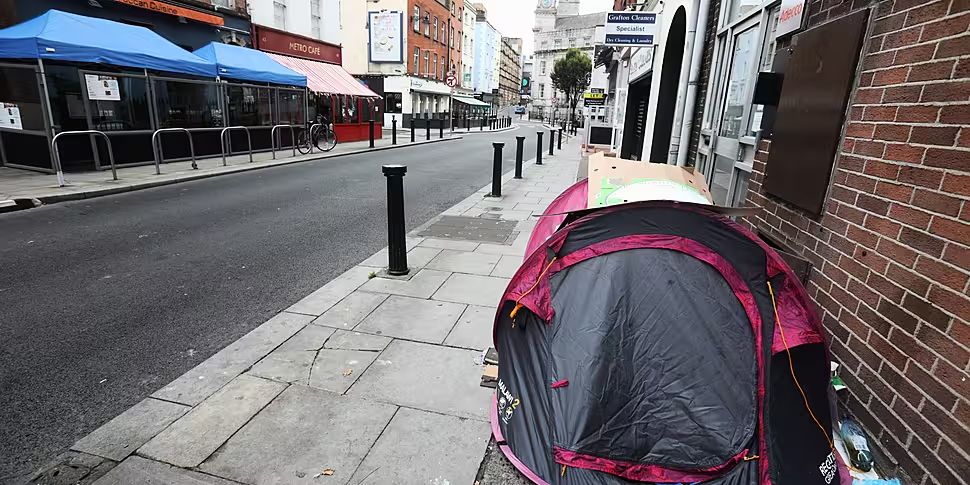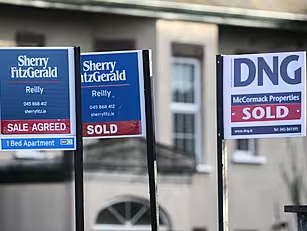12,259 people are registered as homeless in Ireland - the first time the figure has ever gone above 12,000.
The figures have been released by the Department of Housing.
These are figures for April and are a 2% increase on March's total.
8,665 adults are registered as homeless nationally, and there are also more than 3,500 children growing up in B&Bs and hotels for the first time since the start of the Covid pandemic.
Dublin
Dublin is the worst affected area in the country with 8,775 people in emergency accommodation - including more than 2,600 children.
Multiple homeless charities have commented on the figures - DePaul described it as an appalling milestone, while Focus Ireland says this is the first impact from the lifting of the eviction ban almost two months ago.
The figure doesn't include asylum seekers, refugees, women in refuge centres and the so-called hidden homeless.
Frustrated
Catherine Kenny, CEO of Dublin Simon Community says: "Dublin is bearing the brunt of the homelessness and housing crisis, with 9,010 people in emergency accommodation in April, representing a 3% increase on the previous month and a 25% increase over the past 12 months. We are frustrated, but unfortunately, this is nothing new.
"Last week, the Dublin Simon Outreach team logged more than ninety calls in a four-hour period, three times what is typical. Callers were facing imminent homelessness or were already sleeping in cars or on couches. The aftermath of the lifting of the eviction ban is beginning to be felt as tenancies come to an end, and many multiples of people are entering homelessness than are exiting homelessness. Should trends continue in this manner, we may see emergency figures in our capital reach five digits by the end of the summer.
"“The human and financial cost of homelessness is substantial, but there are immediate measures that can prevent its occurrence at the outset. We are calling for the implementation of short and medium-term homelessness prevention measures, to include fully resourced tenancy sustainment services, homelessness prevention teams to be established in each local authority, and a review of Housing Assistance Payment (HAP) to reflect market rates, in conjunction with the longer-term plan to increase housing supply. People becoming homeless in the weeks and months ahead should not have to wait until 2024 or 2025 for homes to live in.
"As the crisis grinds on, Dublin Simon continues to respond with agility and determination, in spite of the heightened pressures we face. We are calling on Government to deliver sustained funding for the homelessness sector that reflects the full cost of service provision, accounts for the expansion in need, and appropriately remunerates staff."













